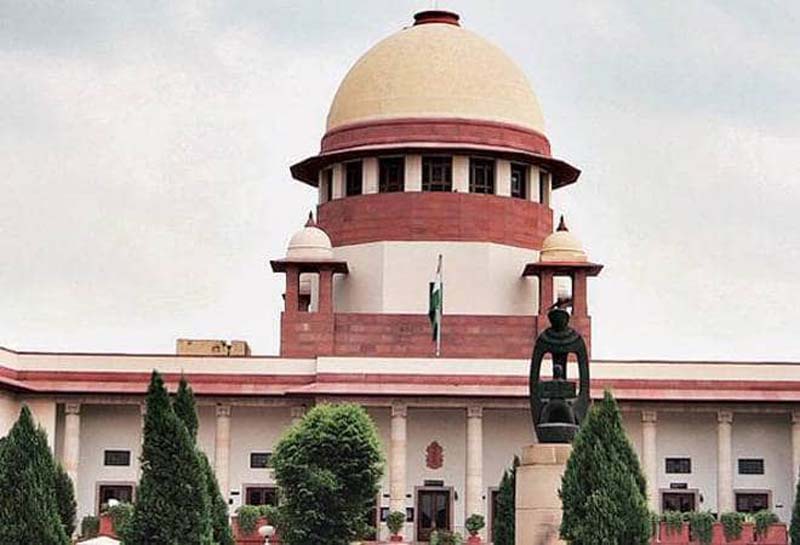Ayodhya dispute
NEW DELHI, July 11: The Supreme Court on Thursday sought a fresh status report on the ongoing mediation proceedings in the Ram Janmabhoomi-Babri Masjid Ayodhya land dispute case within a week and made it clear that if the vexatious issue was not resolved amicably, it would hear the matter on a day-to-day basis from July 25.
A five-judge constitution bench, headed by Chief Justice of India (CJI) Ranjan Gogoi, requested former apex court judge Justice (Retd) F M I Kalifulla, chairperson of the three-member mediation panel, to submit the report by July 18.
The bench said after perusing the report, if it came to a conclusion that an amicable solution through mediation was not possible, then the apex court would commence day-to-day hearing in the matter from July 25.
“We deem it proper to request Justice (Retd) F M I Kalifulla to inform us about the progress of mediation till date and the stage at which the said process is presently at,” the bench, also comprising justices S A Bobde, D Y Chandrachud, Ashok Bhushan and S A Nazeer, said.
“This report will be submitted by Justice Kalifulla latest by Thursday next, on which date further orders will be passed,” the bench said.
The Apex Court passed the order while hearing an application filed by the legal heirs of one of the original litigants, Gopal Singh Visharad, seeking a judicial decision on the dispute and annulment of the ongoing mediation process, alleging that nothing much was happening there.
During the arguments, senior advocate Ranjit Kumar, appearing for deity Ram Lalla Virajman, supported the application and said they had opposed the reference of the matter to a mediation panel earlier as well.
Senior Advocate Rajeev Dhavan, appearing for a Muslim party, opposed the plea for annulment of the mediation process, saying it should be allowed to continue as the fresh plea was a ploy to intimidate them.
However, the bench told Dhavan that since the apex court had constituted the mediation panel, it was entitled to get the latest status report from the committee.
Appearing for the applicant, senior advocate K S Parasaran said at the outset, it was probably very difficult to settle a dispute of this nature through mediation.
Giving details of the number of sittings conducted by the mediation panel, he said it would be better if the apex court decided the dispute judicially.
Countering his submissions, Dhavan said, “I do not think it is fair at this point of time to criticise the methodology of the committee.”
At this juncture, the CJI said, “We will call for a report from the mediation panel.”
To this, Dhavan said stopping the mediation mid-way would be akin to a recall of the May 10 order by which the apex court had extended the time till August 15 for the committee to conclude the process.
“It is simply not fair. They (applicant) do not ask for a recall of the order of May 10. They are simply saying that scrap the mediation committee,” he said, adding, “Serious mediation is taking place there.”
The bench noted in its order that it had earlier asked the parties to the dispute before it to intimate the court in writing with regard to the accuracy and correctness of the translation of the oral evidence and exhibits in the case.
The bench said the parties were yet to intimate it about the same.
The apex court had, on May 10, extended the time for completion of the mediation proceedings till August 15 and said the panel of mediators was “optimistic” about an amicable solution.
On March 8, the court had referred the matter to the panel of mediators for exploring the possibility of an amicable settlement and appointed Justice (retd) Kalifulla as its chairman, spiritual guru and founder of the Art of Living foundation Sri Sri Ravishankar and senior advocate and renowned mediator Sriram Panchu as the two other members of the committee.
It had asked the panel to hold in-camera proceedings and complete the process within eight weeks.
The top court had fixed the seat for the mediation process in Faizabad of Uttar Pradesh, around seven km from Ayodhya, and said adequate arrangements, including those related to the venue of the mediation, place of stay of the mediators, their security and travel, should be arranged forthwith by the state government so that the proceedings could commence immediately. The bench was earlier told by Hindu bodies, except the Nirmohi Akhara, and the Uttar Pradesh government that they were not in favour of the court’s suggestion for mediation. The Muslim bodies had supported the proposal.
Fourteen appeals have been filed in the apex court against the 2010 Allahabad High Court judgment, delivered in four civil suits, that the 2.77-acre land in Ayodhya be partitioned equally among the three parties—the Sunni Waqf Board, the Nirmohi Akhara and Ram Lalla.
On December 6, 1992, the Babri Masjid, constructed at the disputed site in the 16th century by Shia Muslim Mir Baqi, was demolished. (PTI)


